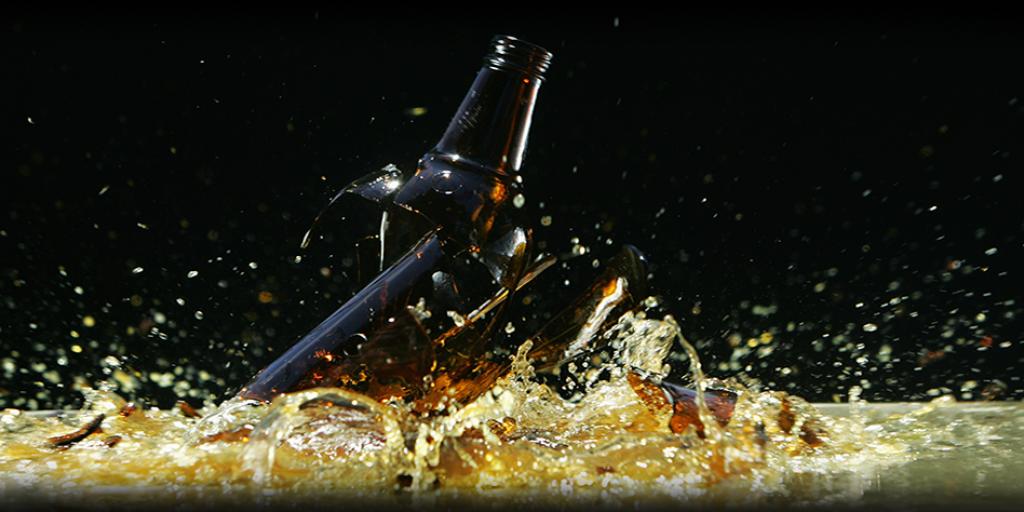
Why Get Drunk?
In a few hours, the world will celebrate New Year’s Day, and many people will be drunk on these occasions—“just for fun.” But sometimes, the consequences are not so funny. Many people get headaches. Quarrels arise among friends and families. Others will end the night at the hospital—and some will “finish the party” at the mortuary because they died in a car accident caused by driving under the influence of alcohol.
In France, alcohol is involved in 30% of traffic accidents, and is the leading cause of fatalities on the road. Each year, more than 1,000 people die for this reason (securite-routiere.gouv.fr). A few years ago, an awareness campaign for the end-of-year celebrations was entitled “When you care for someone, you hold him (her) back,” with the catchphrase “Do not drive if you are drunk.” But do such efforts really educate people? Or do they only encourage people to avoid the consequences of inebriety, rather than try to deal with drunkenness itself?
God really tries to educate mankind. He gives laws for our good and He explains clearly the consequences of evil and irresponsible behaviours. Moreover, He recorded examples for us in the Bible (1 Corinthians 10:6, 11).
The Bible speaks specifically about alcohol and God does not forbid its consumption (e.g. Deuteronomy 14:26; John 2:1–10; 1 Timothy 5:23), but He prohibits its misuse! In ancient times, the priests were forbidden to drink “wine or intoxicating drink” when they went “into the tabernacle of meeting… that [they] may distinguish between holy and unholy, and between unclean and clean” (Leviticus 10:9–10). Today, there is no more physical tabernacle (or temple), but the Church of God still follows the same principle, with its ministers not drinking alcohol before preaching.
The first example of drunkenness in the Bible is mentioned in Genesis 9. After the flood, Noah “planted a vineyard. Then he drank of the wine and was drunk, and became uncovered in his tent… and Ham, the father of Canaan, saw the nakedness of his father” (v. 20–22). What happened exactly? The Bible does not say in details, but it implied some sort of illicit sexual activity. When Noah “knew what his younger son [that is the youngest son of Ham] had done to him… he said: ‘Cursed be Canaan’, a servant of servants he shall be to his brethren” (vv. 24–25). The word “servant” (’ebed) also means “slave,” so the curse is really serious—being “the slave of the slaves” of his brethren! Noah did not initiate this sin, but it would not have happened if he was not drunk.
A few centuries later, after fleeing from Sodom, Lot found refuge in an isolated area with his childless daughters, “so they made their father drink wine that night. And the firstborn went in and lay with her father.” The next day “they made their father drink wine that night also. And the younger arose and lay with him… Thus both the daughters of Lot were with child by their father” (Genesis 19:30–38).
The daughters of Lot were probably still influenced by the lifestyle of Sodom, because they did not seem to worry about incest—which is clearly forbidden by God (Leviticus 18:7). They also had seen their entire world destroyed, and led their father, Lot, to commit incest unwittingly, because they thought their line would end. He was so drunk that “he did not know when [they] lay down or when [they] arose” (Genesis 19:33, 35). However, like Noah, he could have prevented this situation by not drinking too much.
God prohibits the abuse of alcohol because we can lose awareness (Isaiah 28:7; Ephesians 5:18). He explains, “Do not look on the wine… at the last it bites like a serpent, and stings like a viper. Your eyes will see strange things, and your heart will utter perverse things…” (Proverbs 23:31–35).
Paul wrote that “all things are lawful for me, but I will not be brought under the power of any” (1 Corinthians 6:12). The abuse of alcohol is one of those things that can subjugate you. Moreover, the abuse of alcohol can eventually prevent you from entering in the Kingdom of God (1 Corinthians 6:10)!
Instead of dealing with the consequences of inebriety, which can be fatal (physically and spiritually), be sober and moderate when you drink alcohol. Control your mind and your body at all times (the last attribute of the fruit of the Spirit—Galatians 5:22). Thus, we protect ourselves from tragic consequences. Instead of dealing with consequences, we remove the very cause of the problem.
Please read “A Mocker and a Brawler” for more insight on the spiritual problems behind any addiction, and be sure to order your free booklet, The Ten Commandments.
Stay up to date with our Weekly Digest Email!
Tomorrow's World ComMentary Podcast
Subscribe to Tomorrow's World Commentary podcasts on iTunes and Google Play!



